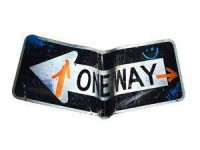J
Jeanh
Guest

In my early 30s, I used an expired grad-student ID to buy discounted movie tickets. (I’d peeled off the date sticker.) I’d tell myself, I’m buying a ticket I wouldn’t have otherwise bought. One must be resourceful in an overpriced city, right?
If you also break rules sometimes, you understand this paradox. We think of ourselves as honest citizens despite daily acts (one to two on average) of cheating, lying, or otherwise innocuous rule breaking. We stand in the express line with too many groceries, play hooky from work, board planes before our seat is called, or lie to give our kids an advantage.
Researchers who study everyday transgressions believe that character isn’t the real driver; situational forces are. We might break the rules under some conditions and in some mind-sets, but not in others.
The Creativity Defense
Years ago, Francesca Gino, a professor at Harvard, and Dan Ariely, a behavioral economist at Duke, wondered if people with higher IQs were more likely to cheat. The duo found that smarts didn’t correlate with dishonesty, but creativity did. When Gino and Ariely posed ethical dilemmas to employees in an advertising firm, the copywriters and designers were more likely to break the rules than the accountants. The more creative you are, the easier it is to retell the story of what happened when you behaved dishonestly.
Test yourself. Why did you pilfer office supplies? You might say that you worked through lunch or that businesses get the stuff cheaply. This is how creative types “reframe” an event. And a creative mind-set, Gino found, is easy to induce in almost anyone—just by using subtle cues. When players in a ******** game were primed to think more flexibly (by being exposed to words like original, novel, and imaginative in a text they read), they cheated more often than those not given the prompts did.
“Working for an organization that stresses being innovative and original can increase our tendency to cheat,” Gino says.
“Should we encourage less creativity in banking?” Ariely wonders.
The Status Defense
Picture two accountants alerted to suspicious entries in the books. The first takes the violation seriously. The second pooh-poohs it. Who has more clout? When Dutch psychologist Gerben van Kleef asked study participants that question, most chose the second accountant. Powerful people break the rules—ergo, breaking rules makes one seem more powerful.
“In its modest form, rule breaking is actually healthy,” says Zhen Zhang of Arizona State University. He found that relatively minor Ferris Bueller–style violations during adolescence—damaging property, playing hooky—predicted an esteemed occupation: entrepreneur.
When young men, in particular, take risks that pan out, testosterone levels surge. The hormone may underlie the “winner effect,” say researchers John Coates and Joe Herbert of the University of Cambridge, who tracked the hormonal activity of stock option traders (again, all male) over their good and bad days in the market. The more wins, the higher the hormones, the greater the confidence boost, the bigger the risks, and so on.
But at a certain point, risk taking can become irrational, reckless, or ruthless. This can cause “ethical numbing.” Consider Steve Jobs: As Apple grew, so did lawsuits against it, like those over patents.
Being wealthy takes a moral toll on both genders. Studies have found that the $150,000-plus-per-annum set was four times as likely to cheat as those making less than $15,000 a year when playing a game to win $50. The rich didn’t stop for pedestrians at a crosswalk nearly as often as less-wealthy drivers. This held true even when people were role-playing—that is, they weren’t rich in real life.
That’s because environment—not any intrinsic personality trait—abets rule breaking, argues Andy Yap, a behavioral scientist. Yap and his colleagues asked volunteers to sit in an SUV-size driver’s seat versus a cramped one or an executive-size office space versus a cubicle and then tested their responses to various moral scenarios. In roomier settings, people reported feeling more powerful and were likelier to s†éál money, cheat on a test, and commit traffic violations in a driving simulation.

You do not have permission to view the full content of this post. Log in or register now.
The Bonding Defense
We aren’t born with an enlightened, universal sense of fairness for all, Harvard University psychologist Joshua Greene argues in his book Moral Tribes. We evolved as tribal animals who followed the rules within small groups (Us) but not with the rest of the world (Them).
We may be born with a crude sense of right and wrong, but our culture refines it. If your tribe downloads pirated music, sells dubious stocks, or accepts bribes, you’re likely to go with the flow or cover up for peers.
The Level-Playing-Field Defense
Let’s say you witnessed someone tear through a red light. Or a colleague received a promotion after boozing with the boss, while you toiled and got nothing. Chances are, you’ll experience a knee-jerk reaction: to get even or at least to level the field.
To test the fairness instinct, Harvard researcher Leslie John, along with two colleagues, told volunteers that others in the room were making more money than they were for getting questions right on a trivia test. Guess what happened? That group, which perceived itself as disadvantaged, cheated more than those who believed that everyone received an equal payment.
The Solution: Self-Awareness
The real threat is the slippery slope—that minor transgressions can snowball into cataclysmic ones. Imagine Bernie Madoff or Lance Armstrong thinking, Just this once. OK, once more. And eventually, they just don’t think about it. Rule breaking worsens over time. Kids who cheat on high school exams are three times as likely in adulthood to lie to a customer or inflate an insurance claim compared with non-cheaters, according to the Josephson Institute.
Behavioral psychology offers a few antidotes. Keep yourself fed and well-rested—we’re likelier to lapse when hungry or tired. Reflect on how your actions look through others’ eyes. In a classic British experiment, a drawing of eyeballs mounted over a collection box at a corporate coffee bar helped enforced the honor system.
When people sign an ethics pledge at the beginning rather than the end of tax forms or job applications—before there’s an opportunity to cheat—they are significantly less likely to be dishonest. The same goes when asked to recall the Ten Commandments before a test, which Ariely found works even among the nonreligious.
Most of us need to see ourselves in a positive light. In a Stanford study, when researchers used the verb cheat—please don’t cheat—participants still cheated freely because they felt distanced from the act. When the noun cheater was used—don’t be a cheater—not a single person did.
The novelist Wallace Stegner summed it up in his novel All the Little Live Things: “It is the beginning of wisdom when you recognize that the best you can do is choose which rules you want to live by.” To which he added: “It’s persistent and aggravated imbecility to pretend you can live without any.”
Attachments
-
You do not have permission to view the full content of this post. Log in or register now.